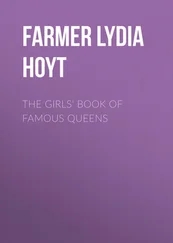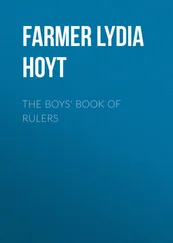The revenge of life. Joan’s thighs ache.
They make for the lowest point of the initial cave’s two-hundred-meter vertical range, a sump just to the right of the entrance. When Joan first found this sump—a pit collecting undesirable liquids from the cave’s walls—she modified it into a filtration basin to manage surface runoff water and recharge underground aquifers. Clean water. Irrigation for plants and fungi. A mini ecological weather system.
They drink heartily, Leone on the far side of the water.
“I can’t stay long,” Leone shouts from across the chamber. “We don’t have a lot of time to get the rest of that crap. I’ll need to get to the Humvee at B-Forty by nightfall. I dunno who those clowns were, but eventually upstairs they’ll figure out they’re dead—and that a line’s been compromised…” Her voice trails off into the depths of the cave as she walks away.
They’d mapped out zones of hidden weaponry, ammunitions, even vehicles—terrain vehicles like Hummers and tanks and motorcycles—but fuel was nearly nonexistent, and biofuel took years to home-brew. More and more, what was the point?
Once, they’d found a graveyard of airplanes, abandoned like giant whale carcasses, FedEx stenciled on their rotting sides. In their travels they’d located five stealth fighters, seventeen Black Hawk helicopters, and four jets: one American, one Russian, one French, and one Saudi. There was even a Japanese World War II fighter jet they’d found in museum rubble. The stories of kamikazes still enthralled Joan; they displayed a form of self-sacrifice devoid of ego that Western nations had never understood. They’d hidden the fuel from the planes and jets near Ryusendo Cave, one of the three great limestone caves in Japan, its caverns and tunnels more than five thousand meters in length, fresh water forming underground lakes up to 120 meters deep, long-eared rabbit bats thriving overhead, the water so emerald-green and transparent it felt like swimming inside a gem.
But what was the point of the machinery? Dead and useless.
Here, beyond their little cave’s entryway, stretched five miles of underground life thriving beyond imagination. Former geographies and nation-borders had overlooked the place—a biodiversity so rich and secret it was nearly its own world. A jungle, a river, a lake; countless old and new species of plant and animal life; even some things in between that Joan was still studying. Fields of algae as large as foothills. Stalagmites as tall as old-growth redwoods. A whole verdant underworld defying the decay of the world above it. There were times Joan half expected a mammal to emerge from its waters, blinking and dripping, the new species taking its first steps onto land.
They’d made a life here. No. Life made itself here. They merely coexisted.
Joan squats underground at the water’s edge and runs her hand through its cool wet. Then a great draft of warm air, accompanied by the sound of a low engine’s hum, builds around her. Louder. Vibrating her sternum. But it is not a machine’s noise nearing.
Diablotin . French for “little devil,” since their loud cries are likened to the sounds of tortured men.
Oilbirds.
A perfect babble of harsh cries fills the space, the beating of their wings like rushing wind. Then in great patterns thinning into lines they disappear into the cave ledges and crevasses where their nests are lodged.
She admires them. Oilbirds were outcasts from other species, alone with their gifts. They are the only nocturnal bird that uses echolocation to navigate, like the bats down the deeper throat of the cave. In fact you could not prod a single oilbird to leave the cave during daylight. They made their lives—chose their world order. Surely an evolutionary process, but to Joan, it was more an act of perfect imagination. They reminded her of her own warrior-child self. The hawk-like predator that ate only fruit. The birds made nests of shit. She identified with them.
Even before the atrocities, the oilbirds had withstood genocide, as they were hunted and exterminated as a resource. Years ago, she knew, the walls of this cave had been lined with long bamboo poles, each with a torch on one side and a sharp iron hook, like a fishhook, on the other. The hook was designed to fish the young oilbirds from their nests. Some sixty young could be tumbled out into what had previously been a great hot spring and immediately drowned this way. Once dead, they could be “picked.”
Young oilbirds, when just beginning to feather out, weighed double the weight of adults. Everything about the child birds outdid their makers.
In her mind she watches them struggle and flap, useless in the scalding water.
Tears run down her cheeks as she thinks of it, the young oilbirds, drowning in the heated waters of the earth’s gut. She weeps for her parents, unable to survive catastrophic geologic events; she weeps for everyone who died on the planet’s surface; she weeps for the dead men she’s so recently killed. She weeps for who Leone was at fourteen, her body still girlward.
Then she notices a young oilbird lying dead in the hot spring not twenty feet from her. Perhaps it fell. Perhaps her thoughts created an action.
She scoops up the oilbird from the water and lays it on the ground. She squats down and pulls her knife from her calf holster. She slits open the bird’s belly and starts pulling the skin from the fat. She hums a childhood song in French about how birds flew away in the sun. Still crying.
She sets about picking the young bird, a process that involves removing the viscera so that the fatty birds can be cooked in various ways—some for food, some for oil to cook, some for oil for lighting.
She hears Leone approaching from far away. After preparing the bird, they will eat, perhaps sleep, and part.
She touches her chest and makes a promise to use every part of the young bird: its bones and feathers and meat and fat, its beak and claws, its blood and brains and sinewy muscle tissue. Spear points and modified thread and eating utensils and paint and salve and tiny sharpened sticks, useful for filling improvised bombs.
She promises to deliver back to the bird a world whose life originated from the hot and cold underground places, almost human-less.
But a rustling catches her attention as Leone enters the cave, her entire body surrounded by some grotesque creature—no, it is a man, or perhaps a woman, Joan can’t tell which—but a very human head and brow bone and eyes set deep and covered in mud emerges, and a human hand holding a knife at Leone’s throat, slowly walks her forward.
Beneath a gaunt stare and filthy skin, a man holds a knife blade to Leone’s throat. He inches Leone forward. His eyes black bullets.
Joan does not flinch. In fact, she barely breathes. She holds the bullet eyes of the man in her gaze, returning something of her might silently back at him. He coughs. A tiny trace of blood where the knife presses in makes a line at Leone’s neck.
Joan shifts her attention to Leone’s face. Nose. Eyes. When Joan looks into Leone’s eyes, she sees two small blank pools. Without emotion. A jaw set against anything in the world. What other reason was there to survive? Leone’s eyes carried everything they’d ever been through together. Small familiar worlds.
Courage. Do not fall back. It was the look she’d given Leone in battle for years.
What, what does this idiotic half-dead man think he is doing in the face of their combined strength and experience? Has he no idea? With his tiny knife and clearly malnourished body? Is he an alien? Does he believe he’s stumbled upon two women from some past where women spoke of la cuisson and les enfants, rather than RPGs and improvised explosive devices? Is she supposed to consider him a foe? She waits. She can smell him as he nears. Dirt, sweat, urine, and the breath of someone who has not bathed or eaten or properly cleaned his teeth in a long while.
Читать дальше












